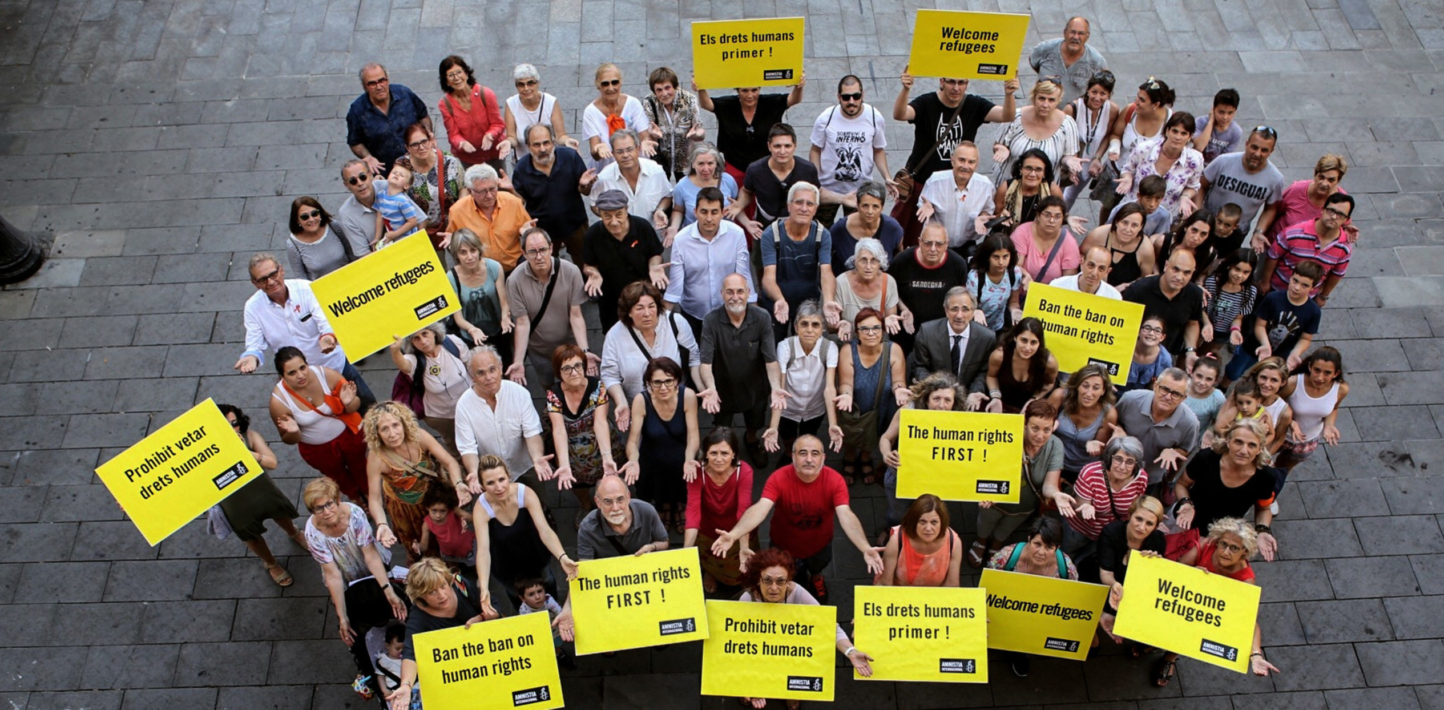In a bid to break down barriers, smash stereotypes and encourage people to take action, an innovative educational online course focusing on the rights of refugees will be rolled out globally to mark World Refugee Day (20 June), said Amnesty International.
The course, which is open to all, covers a spectrum of issues in a straightforward way. Human Rights: The Rights of Refugees includes modules on how to defend the rights of refugees, the role of governments in protecting refugees and preventing human rights violations against them and how to challenge discrimination.
“Every day, all over the world, people make one of the most difficult decisions of their lives: to leave their country in search of a better, safer life. Yet, there is a still a lack of knowledge about the rights of the people who have been forced to flee. Our course provides a unique opportunity to learn about the rights of refugees in a simple accessible way, while encouraging and empowering the public to take action,” said Barbara Weber, Amnesty International’s Human Rights Education Director.
The free educational online course is aimed at people aged 15 and above, and is also available for teachers to use in class. Through a series of interesting exercises and activities taught by Amnesty International’s experts, activists and campaigners, people can learn about the rights of refugees at their own pace.
The course initially ran from 2016-2017, with over 88,000 people enrolling. It is hoped even more people will participate this year and build on the impact achieved so far.
After Montreal’s Olympic Stadium became home to around 1,000 refugees last year, 27-year-old nurse Gabrielle* was motivated to volunteer her time at the stadium and nursing skills after completing Amnesty International’s online course.
“As a nurse, it was natural for me to volunteer in the crisis situation. I’d just finished the online course, which strengthened my convictions and opinions, and motivated me to get involved. It was very stressful, as I had no idea what I was getting into, but I’m really glad I did it,” said Gabrielle.
The nurse is making her voice heard in other ways too.
“After I completed the course, I heard an MP using the term ‘illegal immigrants’ in the media. Regardless of what someone’s opinion may be, especially a person with influence, it’s essential to use the right terms, so I wrote a message, simply to explain what I thought and give the correct definitions,” said Gabrielle.
Yacouba, a student from Mali, also took the course to broaden his knowledge of the rights of refugees so he could better support and help them.
“The course helped me understand the difficulties experienced by people forced to leave their homes because of war, persecution or natural disaster. It helped me understand that any one of us could face these threats,” said Yacouba.
“One of the course components that has been useful to me is the definitions. The distinction between refugees, migrants and stateless persons causes a great deal of confusion and I can now explain the differences between these different situations.”
The course is available on edX.org, a platform founded by MIT and Harvard University.
Amnesty International has been partnering with edX.org since 2015, to date offering three human rights education courses, covering freedom of expression, the rights of refugees and human rights defenders.
From Kenya to Mongolia, Amnesty International also runs human rights education in a host of schools across the world, to ensure young people grow up understanding why human rights are important.
To sign up to the course, available from 20 June 2018, visit: https://www.edx.org/course/human-rights-the-rights-of-refugees
*Name has been changed.


